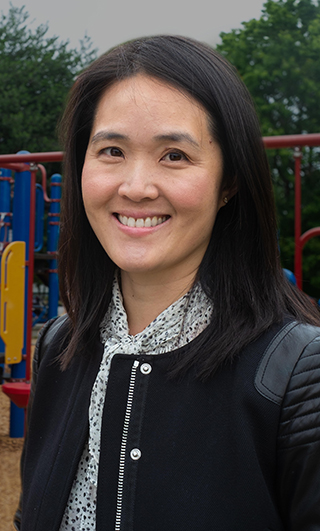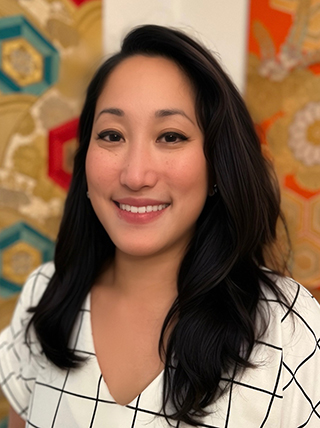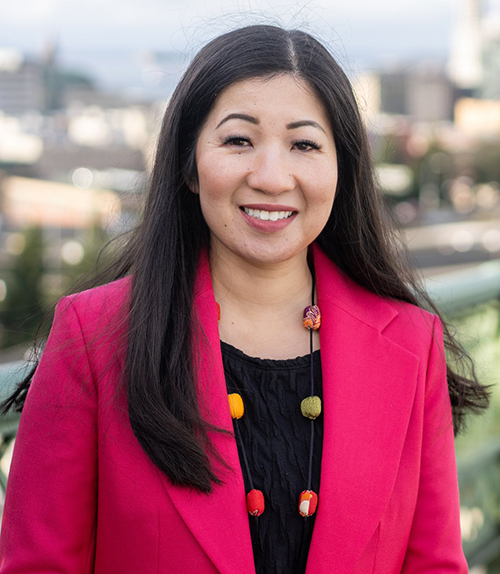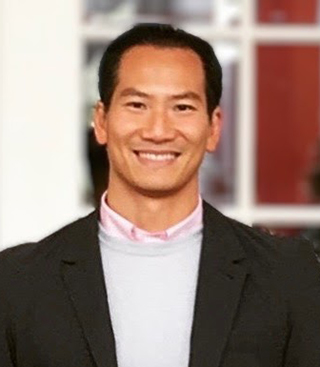By Mahlon Meyer
NORTHWEST ASIAN WEEKLY
Rising to the pinnacle of the Seattle City Council is an aspiration that is driven by family experience, personal values, and, perhaps, a dream of restoring lost justice.
Four of the at least seven candidates from the Asian American Pacific Islander (AAPI) community running for position 8 — Vivian Song, Mari Sugiyama, Linh Thai, and Tanya Woo—shared his or her own vision and background. Also in the running are Neha Nariya, Chris Koa, and Shobhit Agarwal.
While commonalities exist, such as immigrant experiences, differences abound, including how long each has lived in the region, work background, and personal values. Vivian Song, a Seattle school board director, hopes to continue to tackle the same city-wide issues she confronted on behalf of students. Mari Sugiyama, a city administrator who oversees grants for the most vulnerable, said that her experience in government will help her contribute to a city council whose members are mostly new to the system. Tanya Woo, who came squeakingly close to unseating the incumbent in a recent election, said that her on-the-ground experience organizing to help the unhoused and find alternate solutions to public safety and affordable housing make her an optimal candidate. Meanwhile, Linh Thai, a former military intelligence officer, whose work with veterans helped transform communities, believes his experience working on police reform positions him to tackle one of the city’s major issues.
Vivian Song
Vivian Song’s parents were part of the mass exodus of Chinese under the rule of Chiang Kai-shek from China. They immigrated from Brazil and Taiwan to the United States and her mother eventually opened a Chinese restaurant in Dayton, Ohio.
“I grew up in my family restaurant and spent hours stringing string beans, folding napkins, taking orders, and cleaning tables,” she said. “That definitely instilled in me a value around hard work and working together as a team. I think anybody who has experience working in a restaurant understands it takes many hands to keep a restaurant working.”
She also learned skills of hospitality and fluent Mandarin Chinese.
“But I think from a very young age, I also learned the skill of engaging with all people and making a welcoming environment for anybody that walked inside of our restaurant and that is a skill that I really valued and has served me very well as a community volunteer and certainly as a school board director, and I think it’s going to serve me really well as a city council member.”
Song also grew up among the factory and automobile workers of the Midwest. It was there she first experienced anti-Asian hate.
“It was the time when the Japanese auto industry was hollowing out its American counterparts, a lot of my classmates’ parents were losing jobs,” she said. A Chinese American, she was verbally and physically bullied and harassed because she looked Japanese, or because her classmates could not distinguish between the two.
Her college application essay was about feeding the homeless in her hometown, leading a group of student volunteers, perhaps in reminiscence of the flight and wanderings of her ancestors fleeing the Chinese Civil War. Song said it was also an expression of her family values.
“I was raised very much to feel lucky for what you have, that it could be taken away,” she said. “My father was responsible for the extended family, besides his immediate family, and also for many immigrants who would come over and stay with us—my family would connect them with jobs and housing,” she said.
She was accepted to Harvard—the first woman in her family to go to college. Thereafter, she earned an MBA from Harvard. She went into investment banking, then worked in high-tech, then started her own business. She moved out to Seattle in 2018 so her kids could be closer to their grandparents.
Seeing her kids, and their classmates, in the Seattle School District, she decided to join the PTA, and eventually run for the Seattle School Board.
“I was called to run over concerns about the district’s budget deficit, returning to in-person learning post-pandemic, and public safety concerns related to homeless encampments on school district property,” she said.
It was, in a way, a repeat of her own school years, only this time it was not bullying on account of Japanese economic success. It was bullying on account of the pandemic, not to mention the hardships created by economic shortfalls in the school district’s budget.
A survey taken during the waning years of the pandemic, when kids were preparing to return to school, showed that Asian and Black kids, in particular, were reluctant to return to the classroom—they were afraid of being bullied after the pandemic.
Her experience in corporate finance, and her experience on the school board—working with a small legislative body to manage a large budget (the school district’s budget was $1.2 billion compared to the city’s $1.6 billion) and close large budget deficits—make her suitable to serve on the council.
“I was exposed to the same city-wide issues that I will be on the council,” she said. “Public safety issues, food and housing insecurity.”
Asked about the specific challenges facing the Chinatown-International District (CID), she said, “The CID community is made up almost entirely of small businesses who work hard every single day to keep their operations going. It’s what makes that community special, and frankly, it’s amazing so many are still open. Their perseverance is why you still see so much activity and life in those areas. But they can’t do it alone. The city needs to extend its vision of “Downtown” to include the CID and treat the area like the engine of the city that it is. We need better lighting, more sanitation, and more safety resources. We need more services for people living unhoused there, so we can bring them inside immediately. The illegal activity on Twelfth and Jackson needs to end now, just like it does along Third Avenue around Pike and Pine.”
She added there was “one thing more” to know about her. She was born with a hearing disability, which means, she said, she has really had to focus on learning how to listen—which is one of her greatest strengths.
Mari Sugiyama
Mari Sugiyama grew up under the shadow—if that’s the right word—maybe effulgence is better—of her father, the great Al Sugiyama, a transformative leader and the first Asian American to be elected to the Seattle School Board, as well as an activist mother.
“It wasn’t weird to be regularly going to events at the Sheraton for 700 people,” she said, referring to galas coordinated by her father for networking and job opportunities within the community. “It wasn’t weird for people to be coming up to him all the time,” she said. “What was weird was when it didn’t happen.”
Sugiyama’s grandparents, on both sides, were incarcerated in concentration camps during World War II. But unlike some Japanese Americans, who emerged and tried to embrace an American identity even harder, her parents embraced their Japanese American identity even stronger.
So did she. At the University of Washington, she studied Japanese and took part in a rigorous community scholarship program to select representatives from the Japanese American community. She was elected “First Princess,” then served as program advisor until 2012.
She worked in a wide variety of jobs, including at hotels, for the Girl Scouts, but did not “hit her stride” until she joined the city government over 8 and ½ years ago. It was during the time her father was battling with cancer.
“I didn’t tell him I was applying for the job,” she said. “I didn’t want to hear the usual dad take on it or the dad advice.”
But during the interview, someone asked her how her dad was faring. “Tell him we are thinking of him,” she was told.
While she wanted to get the job on her own, she found the message extremely moving.
“I want to do justice to my dad by carrying on his legacy but very much so in my own right,” she said.
Now she manages a team within the Safe and Thriving Communities Division of the Human Services Division. The division was created after the Black Lives Matter movement and the calls to defund the police to provide other means to ensure public safety for the city. Through interventions and preventative work, her team provides grants and contracts to around 50 organizations.
For instance, they support programs to feed senior citizens, to train youth to help senior citizens learn how to take public transport, to provide protection to massage parlor workers, and to help people just released from prison to reintegrate into society.
Among her qualifications for city council, it’s not only overseeing the distribution and vetting of funding for such programs, it’s also a familiarity with the way the city works and many of its departments.
“We’re in this really unique time where we have a vast majority of council being new to city council positions, and knowing some of the other departments, knowing some of the programs, knowing some of the individuals who work there could, I think, really be a benefit,” she said.
One of her family values includes collaboration, including across ethnic lines. “After the LA riots, I remember my mother taking me to Mt. Zion Church,” she said. “I didn’t realize why we were going at the time. It was not until after my mother passed that I fully understood.”
Now that she’s involved in some of the same work her parents were, she wishes she could talk with him.
“We’re still fighting a lot of the same battles that my dad was, for example, when the Kingdome was being built 50 years ago, but I’d like to know how they did it back then. They didn’t have social media, they didn’t have cell phones. They would just say, ’We’re going to show up at this particular spot,’ and people would show up,” she said.
Tanya Woo
Tanya Woo had just come from her family’s building, which she helped convert to workforce housing. The power had been out there and over four city blocks from 6:30 a.m. until 10:30 a.m. People were trapped in the parking garage. Workers could not get into restaurants to prepare for the day.
This is an example of why she is applying for position 8. While the issue took place in the CID, similar issues occur city-wide, she said. There is a lack of accountability and transparency. Unhoused people sleeping in doorways, she said, occur not just in the CID, but across town.
Her work leading volunteers for years, handing out food, water, and clothing to the unhoused, performing CPR and assisting people in encampments, has heightened her realization that the city is failing to provide the most basic services
“We formed out of necessity, the hope of this group basically is to cease to exist,” she said.
Other community watches, modeled on hers, are forming all over the city. “We get emails and texts all the time, asking how we are doing it,” she said.
Her experience remodeling her family’s building after a fire gutted it in 2013 prepares her to work on issues of housing affordability. The vacant position, besides being in charge of City Light, also oversees the city’s allocation for the arts. Woo raised $200,000 to restore murals painted on the walls of a jazz club below the family hotel. They were from the prohibition era and signified the mix of peoples from different ethnic communities who came to listen to jazz. She has also gotten grants for her community watch.
Growing up on Beacon Hill, Woo and her siblings were, sometimes unknowingly, exposed to all sorts of dangers.
“I always wondered why my mother would suddenly say, ’Now, it’s time to take a nap, lie down quickly on the floor,’” she said. Only later did she realize there was a shooting in the area, and her mother wanted them to be out of the way of any stray bullets.
When her sister became involved with a local gang, her mother instantly sent her away to the East Coast with family friends. This was after the death of her father, when Woo had thrown herself into community activities like martial arts and dance. Her sister, seeking family structure, had fallen in with the same gang that was robbing the neighborhood.
Perhaps it was the urgency of family crises, and the threats that surrounded her, that led her to her hands-on approach of tackling the ills that are plaguing the CID. Woo said she is uniquely positioned to work on city council given her “boots on the ground” experience with the unhoused community and creating affordable housing to help senior citizens age in place. Public safety has always been a priority—she was sitting in her car watching people vandalize small businesses and so the community watch started. But rather than believing the police are the only answer, she has worked with her team of volunteers to find alternate solutions.
“Just last night, during our block watch, we encountered a very scary individual, but we were able to deescalate the situation,” she said.
While Woo led teams to provide support to the unhoused, the county was planning to expand a shelter in the area. A legacy of redlining, racism, and economic disparity had concentrated the unhoused in the area. The community wanted a seat at the table and a 6 month moratorium for the proper community outreach and engagement. But the county wouldn’t listen. So she mobilized a large portion of the community to protest.
Such issues, she said, are emblematic of problems plaguing the entire city, and other neighborhoods.
“A lot of things that I did run on also apply to the entire city, sometimes the city and county don’t have that direct line of communication to communities, and communities are upset that they’re not being heard,” she said.
Linh Thai
When Linh Thai told his mother he was going to join the U.S. Army, she said she would disown him. He didn’t listen. But later, on her deathbed, he told her that he wanted to be just like her, in the courage she had shown to fight her final battle.
“On Sunday she died, and Monday I went back to work,” he said in a TED talk given seven years ago when he was working for Rep. Adam Smith. “She wouldn’t have wanted it any other way.”
His mother, in her later years, had become a Buddhist nun. In some ways, it was the exact opposite of the trajectory he had followed. But in other ways, it wasn’t.
The family had immigrated to the U.S. from Vietnam. Thai’s father was an officer in the South Vietnamese army. He had been put in a labor camp by the communist regime. And the only reason he was released, according to Thai, was because he had contracted malaria and his captors “didn’t want to waste medicine on him.”
But Thai’s uncle had been a paratrooper, and this became his dream.
So when his mother told him not to join the military, he couldn’t listen.
“Fifty-eight thousand Americans gave their lives for a country they didn’t know,” he said. He said his decision to join the U.S. military was, in part, a “blood debt.”
He became a paratrooper. He described the day he “earned his wings” as the happiest day of his life. He had gone into the service right after high school, so after three years, he returned to school, this time the University of Washington, where he earned a degree in political science. Then he rejoined the army, this time in military intelligence. He stayed for another seven years.
After leaving the service, he worked for a time with veterans through a national nonprofit, the Mission Continues, connecting them with projects to help society, including in Seattle. He led efforts to have Vietnamese added to the street signs in Little Saigon. But when asked his qualifications for city council, besides saying he was a long-time Seattleite, the first thing he said was he was a renter.
Many people on the council may not have the direct lived experience of housing insecurity, he said. When he and his family first arrived in the U.S., there were seven of them living in a single room. Now, as a renter, he would bring a direct perspective of the challenges facing most Seattleites—housing affordability.
During his work with veterans, he supported many through struggles with homelessness.
“The sooner we can bring someone out of homelessness, the better,” he said. “The longer you stay in it, and it becomes a chronic issue, whether it’s homelessness or a drug condition, they feed off each other.”
Thai, whose older sister is state Rep. My Linh-Thai, worked for Rep. Smith for six and half years. He also has experience leading a number of local nonprofits, involving issues ranging from education to civic engagement. He also has experience as a small business owner. He and his wife ran an insurance agency for several years.
More recently, he served on a committee advocating for police reform—Deescalate Washington, which successfully passed Initiative 940.
“From the public safety aspect, I think everybody wants to feel safe and be safe,” he said. “Everybody wants to have a strong and capable, but also compassionate and humane, police force.”
Thai was on the citizens selection committee for the previous chief of police—Carmen Best. “I’m not for defunding the police, for sure, but I absolutely believe sincerely from my heart that the culture of the police needs to be reformed and the police need to stay accountable, and that’s where the city council should be super important,” he said. “We can and should support our officers, including better raises and better recruitment in diverse communities, but training is so important, and we’ve got to make sure that part of that is a compassionate culture.”
To see a complete list of applicants for Position 8, go to seattle.gov/cityclerk/council-vacancy
Mahlon can be reached at info@nwasianweekly.com.








Hi Jerry & Charlene Lee,
As one of the four candidates reported here, I am committed to addressing public issues uniquely confronting CID/Little Saigon communities AND other hot spots around the city collaboratively with other council members. Environmental safety has always been the front of mind and an important and effective tool for crime prevention. I have a track and transparent record of advocating for environmental safety designs.
I hope all 4 candidates will be supportive of the businesses in the CID. We need to get rid of the drug dealers, improve street lighting, and eliminate the rampant crimes committed in the evenings. Parking on the streets or in lots is dangerous and prevents people from wanting to support the restaurants and activities in the CID. The streets are littered with broken glass and drug dealing is done openly in the evenings AND in broad daylight. People don’t feel safe walking the streets.